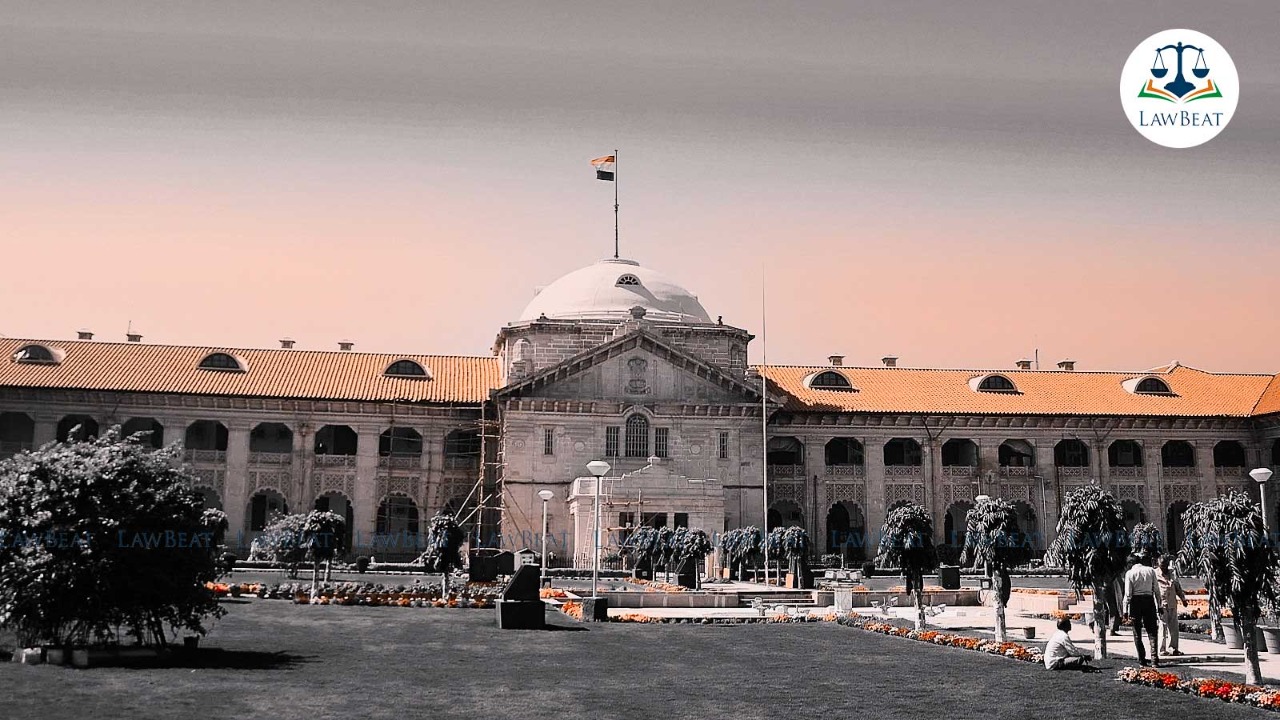Not necessary to inform borrower of proceedings under S. 14 of SARFAESI Act, but order passed must be duly served: Allahabad HC

Court said that once the borrower is granted an opportunity at the stage prior to initiation of the coercive measures after calling upon him to pay the dues of the secured creditor, no further opportunity is to be given either at the stage of Section 13(4) or Section 14.
The Allahabad High Court recently held that the Chief Metropolitan Magistrate (CMM) or District Magistrate (DM) acting under Section 14 of the SARFAESI Act, 2002 is not required to give notice to the borrower at the stage of the decision or passing order as no hearing can be demanded by the borrower at that stage.
Section 14 of the SARFAESI Act provides for judicial assistance to creditors wishing to take possession of the secured asset enforcing their security interest as envisaged under section 13 of the Act.
The bench of Justice Sunita Agarwal and Justice Vipin Chandra Dixit, however, clarified that the order passed by such Magistrate has to be duly served upon the borrower before taking any steps for his forcible dispossession.
Referring to a recent decision dated 27th July 2022 in M/s R.D. Jain and Co. vs. Capital First Ltd. & others by the Apex Court, the bench said, "...the Apex Court has considered that the powers of the Chief Metropolitan Magistrate under Section 14 of the SARFAESI Act is purely executionary in nature having no element of quasi-judicial functions and the power exercised by CMM/DM is a Ministerial Act".
"...No adjudication of any kind is contemplated at that stage. The legal niceties of the transaction is not to be examined by the Magistrate to examine the factual correctness of the assertions made in the affidavit, filed in accordance with the first proviso to sub-section (1) of Section 14 to record his satisfaction to pass appropriate order for taking of possession of the secured asset," it added.
The court was dealing with a batch of petitions challenging the validity of the order passed under Section 14 of the Securitisation and Reconstruction of Financial Assets and Enforcement of Securities Interest Act, 2002 (SARFAESI Act) by the Additional District Magistrate (Finance & Revenue), Ghaziabad, Meerut Commissionerate and the Additional District Magistrate (Finance & Revenue), Varanasi.
The petitioners, who were borrowers, had argued that no notice or opportunity of hearing had been granted to them, thus, the orders impugned suffered from violation of principles of natural justice.
However, the court held that under the scheme of the Act, it is implicit that the observance of principles of natural justice is at the stage of Section 13(3A), i.e. before the secured creditor proceeds to initiate coercive measure against the borrower under Section 13(4) of the Act.
Once the borrower is granted opportunity at the stage prior to initiation of the coercive measures after calling upon him to pay the dues of the secured creditor, no further opportunity is to be given either at the stage of Section 13(4) or Section 14, court added.
As regards the opportunity to be granted to the borrower to object the assertion in the affidavit accompanying application moved by the secured creditor in view of the proviso to sub-section (1) of Section 14, court held that the information as required under this provision is needed for transmission to the officer passing order under Section 14 of the Act, 2002, to enable him to record his satisfaction that the secured creditor has taken necessary steps before making request to seek physical possession by force and there was a refusal or inaction on the part of the borrower to handover physical possession.
"The satisfaction recorded is subjective and not based on any objective criteria," court observed.
Accordingly, court held that no enquiry in the nature of judicial or quasi-judicial proceeding is required to be conducted by the CMM/DM who is authorized to take possession of the secured asset and forward such asset to the secured creditor, in terms of sub-section (1)(a)&(b) of Section 14.
In light of the same, court dismissed all the petitions stating that the challenge to the orders impugned by the competent Authorities passed under Section 14 of the SARFAESI Act, 2002, on the plea of violation of principles of natural justice, was liable to be turned down.
Case Title: Shipra Hotels Limited And Anther v. State Of U.P. And 3 Others and connected matters
